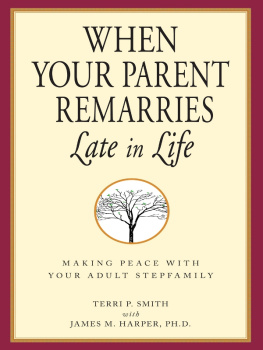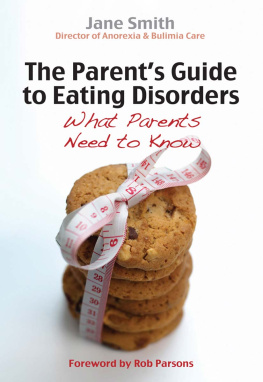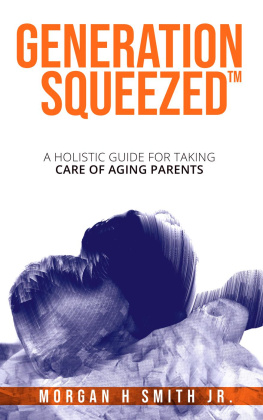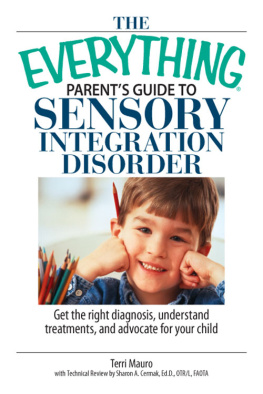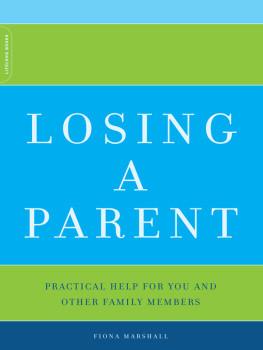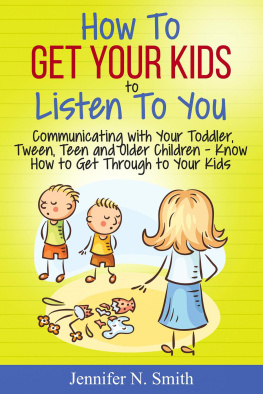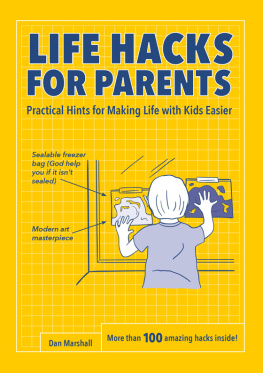WHEN
YOUR PARENT
REMARRIES
Late in Life

MAKING PEACE WITH
YOUR ADULT STEPFAMILY
TERRI P. SMITH
with
JAMES M. HARPER, PH.D.

Copyright 2007 by Terri P. Smith
All rights reserved.
This book, or parts thereof, may not be reproduced in any
form without permission from the publisher; exceptions are
made for brief excerpts used in published reviews.
Published by
Adams Media, an F+W Publications Company
57 Littlefield Street, Avon, MA 02322 U.S.A.
www.adamsmedia.com
ISBN 10: 1-59869-064-7
ISBN 13: 978-1-59869-064-4
eISBN: 978-1-44051-674-0
Printed in the Canada.
J I H G F E D C B A
Library of Congress Cataloging-in-Publication Data
Smith, Terri P.
When your parent remarries late in life /
Terri P. Smith with James M. Harper.
p. cm.
ISBN-13: 978-1-59869-064-4 (pbk.)
ISBN-10: 1-59869-064-7 (pbk.)
1. Adult childrenPsychology. 2. RemarriagePsychological aspects. 3. Parent and adult child. 4. Stepchildren. 5. StepfamiliesPsychological aspects.
I. Harper, James M. II . Title.
HQ799.95.S55 2007
306.84dc22 2007010859
This publication is designed to provide accurate and authoritative information with regard to the subject matter covered. It is sold with the understanding that the publisher is not engaged in rendering legal, accounting, or other professional advice. If legal advice or other expert assistance is required, the services of a competent professional person should be sought.
From a Declaration of Principles jointly adopted by a Committee of the American Bar Association and a Committee of Publishers and Associations
Many of the designations used by manufacturers and sellers to distinguish their product are claimed as trademarks. Where those designations appear in this book and Adams Media was aware of a trademark claim, the designations have been printed with initial capital letters.
Material from Laugh in the face of adversity: Im not kidding used with permission of the author, Dr. Barry Bittman.
This book is available at quantity discounts for bulk purchases.
For information, please call 1-800-289-0963.
Contents
Foreword
M elanie sat in my therapy office, describing how she and her husband were fighting over how her siblings had treated her father when he remarried. Her dad had remarried only eighteen months after her mother died of cancer. She and her siblings were shocked and reacted by threatening to disown Dad if he went through with the wedding. He told them he was perfectly capable of making this decision; he was lonely, and they should mind their own business. He went ahead and got married, and they disowned him. Now five years later, she and all of her siblings continue to refuse contact with their father or his wife; they kept their children from the influence of their grandparent, and Melanie defended her siblings actions in the face of her husbands criticism. While this is an all too common story in therapy, I shouted in my mind, This need not be the case!
When Terri Smith first approached me about being involved in writing When Your Parent Remarries Late in Life, I immediately thought of the case I described above. Numerous resources have been written for stepfamilies with young and adolescent children, but until now, there has been no resource to help adult children whose parent is remarrying. In my practice of thirty plus years as a marriage and family therapist, I have encountered numerous family members struggling to adjust to their stepfamily experience. I wish that this book had been written then because it is a resource that would help every stepfamily. I know we wrote it for adult children whose parents remarriage is throwing them into a stepfamily, but many of the suggestions would help any stepfamily. This book is a must read for a parent of adult children who is considering remarriage, for the potential stepparent, and for the adult children who will, willingly or not, be faced with how to adjust to their parents remarriage.
Writing the book has been fun, painful at times, but worth it. Terris personal experience of having her father remarry and my professional experience of working with stepfamilies make a unique combination. Combine that with the stories of the many families who were interviewed for the book, and the result speaks to the heart of both parent and adult child. The flow of personal stories, the wisdom of clinical experience, and findings from empirical research mix nicely together to create numerous suggestions for dealing with such matters as how to cope with your parent dating, what to do about the wedding, what to call a new stepparent, how to keep loyalties to your deceased or divorced parent from sabotaging your relationship with your new stepparent. With people living longer, many who do not now think they will need this book will discover a need for it at some future time.
An interesting twist in the book is the creative use of Erik Eriksons eight stages of human development as a lens through which to view the transition of adult children as they adjust to different phases of their parent remarrying. While being an unusual application of Eriksons stages, it nonetheless helps validate feelings adult children typically have when their parent remarries. It does not stop there, however. Eriksons framework forms the basis of suggested actions that will help adult children successfully navigate each phase of their new transition in a stepfamily.
Parents who are considering remarrying will avoid several common mistakes if they will read this book. It will help them understand the perspectives of their adult children, communicate more openly, and face some of the challenges head on. Stepparents, likewise, will benefit from reading about anticipations, fears, and experiences of adult children in stepfamilies.
The remarriage of a parent presents new opportunities for growth, nurturing, and love. It does not have to negate any influence a deceased or divorced mother or father has had. It does require change and adjustment while holding out the possibility of adding new loving, supporting relationships. It is our hope that the many suggestions will help you navigate the path more smoothly and with greater passion and peace.
James M. Harper, Ph.D.
Acknowledgments
D r. Randy Bott challenged me to write a book on a subject I didnt understand. Thank you for giving me that challenge for it has changed my life for the better. My interviews and research increased my understanding of interpersonal relations and motivated me to make personal changes.
I am grateful to each individual and couple who shared their story with me of their parents remarriage or of becoming a stepparent. Their experiences and insights are the core of this work. Their wisdom and examples helped me to improve my relationship with my father and stepmother.
I am thankful for the Robert G. Allen Institute for mentoring me in the process of getting my ideas and thoughts into print. The institutes coaches guided me in the procedure of writing and preparing a book proposal to present to publishing houses. They also answered my questions and gave feedback that helped me to prepare a successful book proposal.
After presenting my proposal to several editors whose companies publish books of my genre, Paula Munier of Adams Media believed in my ideas and offered me a contract. I appreciate her willingness to accept the work of a first-time author. Meredith OHayre worked closely with Ms. Munier in editing this work. Thank you. I also appreciate the efforts of my literary agent, Barbara Doyen, in working behind the scenes to negotiate the details of the contract. Her efforts allowed me to continue with my research and writing unencumbered by the additional research of the legalities of publishing contracts.
Next page
